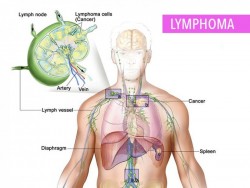
Parkinson's disease is a neurological condition that affects a wide range of functions. The changes that occur can have a significant impact on the physical and mental aspects of a person's life.
The hallmark signs of Parkinson's disease (PD) are a tremor, slow movement, and rigidity. In addition, difficulty with coordination, a number of non-motor symptoms, and other complications are common.
However, there are ways to manage many of these complications. Doing so can ensure a better quality of life for a person with PD.
Find out more about the complications of Parkinson's disease and what you can do about them.
Speaking can become difficult over time.
As PD affects the muscles, a person's speech can become softer and harder to understand. Over time, changes in thinking ability can make it harder to communicate. This can make it hard to join in social activities.
A study published in the BMJ Open in 2017 notes that speech therapy is important for keeping people communicating effectively. It can help to improve or maintain a person's quality of life.
Chewing and swallowing difficulties can occur, especially during the later stages of the disease. These can be due to changes in function either in the autonomic nervous system or the muscles in the throat, known as the pharyngeal muscles.
These changes increase the risk of getting food stuck in the throat and choking, which can be life-threatening. If the person accidentally breathes food particles into the lungs, pneumonia can result.
The person may also produce too much saliva or they may not be able to swallow the saliva easily. This can lead to drooling, which can be embarrassing for the individual.
Some medications may improve symptoms. A speech-language therapist can sometimes help a person to retrain their throat muscles so that they can swallow more effectively.

Depression can occur with PD, and it can make symptoms worse.
Researchers suggest that around 40 to 50 percent of people with PD also experience depression. They add that this aspect of the condition can be harder for the individual and their loved ones to cope with than the physical symptoms.
However, the symptoms of depression are treatable, and recovery is possible.
Seeking medical help when symptoms of depression start to appear can give the person a better quality of life, improved functionality, and a chance of slowing the symptoms.
It is common to experience a drop in libido, or sex drive, with PD, and it may be difficult to have an orgasm or an erection.
The drop in sexual interest and physical functioning can happen because of a fall in dopamine levels, according to the American Parkinson Disease Association.
Vaginal dryness can also be a problem.
Depression and anxiety can reduce a person's energy levels and their interest in things they used to enjoy, such as sex. Fatigue may be a factor.
Depression and mood change can also cause changes in behavior and attitude. A partner may feel that their loved one is "not the same" as before.
It is important to remember that this is the same person and for both partners to communicate how they feel. A counselor can help people to find ways to enjoy a new relationship.
In rare cases, medications that increase dopamine levels in people with Parkinson's disease may increase the person's sex drive to an unusual level. This, too, can become a problem for some people.
Treatment is available for many of the symptoms that can disrupt sexual activity at this time. Medications can improve a person's mood. Lubrication, for example, might help with vaginal dryness.
People with PD are more likely to have sleep problems than those of the same age who do not have the condition.
Some people have difficulty falling asleep while others fall asleep easily, but then wake up and cannot get back to asleep again, according to the University of California Parkinson's Disease Clinic and Research Center.
Establishing a pattern of good sleep hygiene may help.

Some people may leak urine while others find it hard to pee properly. Sometimes this may be due to the medications that people are taking.
A doctor can help to find a solution. Discreet pads are available from a pharmacy.
Statistics show that up to two-thirds of people with PD experience constipation.
In turn, constipation can lead to anxiety and additional discomfort, and this can worsen the experience of PD and further reduce the person's quality of life.
People should speak to their doctor before taking any medication for constipation, as some drugs and alternative remedies can interfere with other medications.
Changes to proteins in the brain, such as Lewy bodies, can lead to dementia in Parkinson's.
The Alzheimer's Association estimates that between 50 and 80 percent of people with Parkinson's eventually develop dementia. On average, this takes around 10 years from when symptoms first appear.
Medication can help to slow the progress of dementia, but symptoms usually become more severe over time.

Pain is a common symptom of PD. Figures suggest that over 60 percent of people with the condition experience pain. Of a list of bothersome symptoms, pain comes third after tremor and stiffness.
People report that between 40 and 90 percent of the pain of PD is musculoskeletal, and they mostly describe the sensation as burning, cramping, or aching.
Individuals should ask their doctor to recommend ways of reducing pain that are proven safe and likely to be effective.
The autonomic nervous system controls blood flow and blood pressure. This is part of the nervous system that people cannot control, as they can, for example, a hand or foot.
PD affects this system, leading to changes in blood pressure throughout the day.
One problem is orthostatic hypertension, a drop in blood pressure that causes a person to feel dizzy or faint when they stand up. It can also lead to falls and fainting.
Low blood pressure is most common with PD, but some people also experience very high blood pressure at times. These fluctuations can lead to heart problems.
A doctor may be able to prescribe a medication to stabilize blood pressure and prevent dramatic changes. Compression stockings may also help.
Over 95 percent of people with PD lose their sense of smell to some degree, because of Parkinson's impact on the nervous system.
It is an early sign of the disease, and it can occur years before other symptoms appear. Doctors see it as a possible predictor of PD.
The loss of the sense of smell is one of the top five most common symptoms of the disease.
 What Happens When You Quit Smoking – A Timeline
What Happens When You Quit Smoking – A TimelineEvery year more than 7 million people die as a result o...
 Types Of Yoga, Which One Is Best For You?
Types Of Yoga, Which One Is Best For You?There are two types of people in the world - those who ...
 10 Amazing Health Benefits Of Apricot Juice
10 Amazing Health Benefits Of Apricot JuiceOriginally from China, the use of apricots began almost...
 Cheap & Healthy Shopping List for Students
Cheap & Healthy Shopping List for StudentsCheap & Healthy Shopping List for StudentsStaying o...
 This Honey, Lemon And Cinnamon Drink Will Help You Lose Pounds In A Week
This Honey, Lemon And Cinnamon Drink Will Help You Lose Pounds In A WeekThe most effective way to lose weight is to do aerobic ...
 What You Need To Know About Lymphoma
What You Need To Know About LymphomaLymphoma is a cancer of the lymphatic system. It affect...
 This Honey, Lemon And Cinnamon Drink Will Help You Lose Pounds In A Week
This Honey, Lemon And Cinnamon Drink Will Help You Lose Pounds In A WeekThe most effective way to lose weight is to do aerobic ...
 Colon Cancer: Could Exercise Halt Tumor Growth?
Colon Cancer: Could Exercise Halt Tumor Growth?New research published in the Journal of Physiology sug...